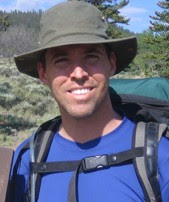For the first time since my wife completed her PhD I am a guest at a professional conference. It is really a terrific feeling seeing Kay in her element and respected for her work. But that is not the subject of this entry.
I attended an interesting talk yesterday afternoon on Rhesus monkeys. The researcher, Dr. Steven Sumi, has worked with a large colony of these animals for over 20 years. They are genetically similar to humans, as are most primates, but are not our closest genetic relative.
If you carefully observe these animals you will notice that there are several sub-populations within the larger family groups. The subject of this study was a population (5-10% in the wild) that is overly aggressive and prone to taking serious risks, including alcoholism and binge drinking. These little monkeys are mostly male, and - if their behavior cannot be corrected - are kicked out of the family and not allowed to return. Aggressive behavior is not welcome in these matriarchal family groups.
Tie to genetics - In humans several genes have been associated with risk taking behaviors, alcoholism, aggression, etc, including (but not limited to) an uptake transporter for the neurotransmitter serotonin (5-HIAA). According to Dr. Sumi there is a single nuceotide polymorphism (SNP) that causes the amount of the transporter to be dysregulated (lower than normal). (At this point I need to pause and point out that I am at a psychology meeting and not a neuroscience meeting. While the behavioral aspects of Dr. Sumi's talk were excellent, his presentation of the genetic and molecular data was rather weak. I suspect that he collaborates with a group of geneticists who do that aspect of the work.)
Back to the presentation - interestingly, the mutation in 5-HIAA that we see in humans also shows up in the Rhesus monkey... and only in the group that is overly aggressive! There seems to be a strong, positive correlation between the presence of the mutated 5-HIAA and aggressive, risky behaviors.
Left alone the correlative relationship of gene to behavior would be interesting, but watch this: if a baby monkey with the bad version of 5-HIAA is reared by an experienced mother with good mothering skills the effect of the bad gene can be completely reversed!!! This represents an excellent example of nurture overwhelming nature.
What's missing? Quite a bit actually. First, Dr. Sumi never intimated whether these animals were homozygous or heterozygous for the mutated 5-HIAA, so we have no way of knowing how much of a contribution was made by the mutated gene. As far as I can tell, no knock-in, knock-out, or RNAi experiments have been done on these animals to determine the full measure of gene involvement. I would suggest that this research needs to be expanded by the molecular biology community.
One last observation made by Dr. Sumi bears mention. The mutated form of 5-HIAA is only seen in the most widely dispersed and biologically successful primates: Rhesus monkeys and humans. He suggested that the reason this gene stays around in the gene pool is that it is necessary for our survival as a species.
Saturday, August 16, 2008
Subscribe to:
Post Comments (Atom)

2 comments:
what a concluding sentence!
too much risk for most of the population would end in death.
but a few risk takers might brave environmental extremes and colonize new niches... or continents. so the risk taking remains (?).
I remember hearing someone say that those Europeans who braved the Atlantic to colonize the new world have led to a slightly more risk-prone population.
Now that is a very fascinating article. Not only is the science on the genetic end of things interesting, but the implications for the social science end of things are intriguing as well. If it turns out that good mothering can indeed help mitigate the effects of (some) bad genes, then it would follow that good friendships, good community and good society could work towards that end as well. When the church actually works, I think it performs this function well - not only by helping people with "bad" genes, but by helping produce better mothers.
Post a Comment